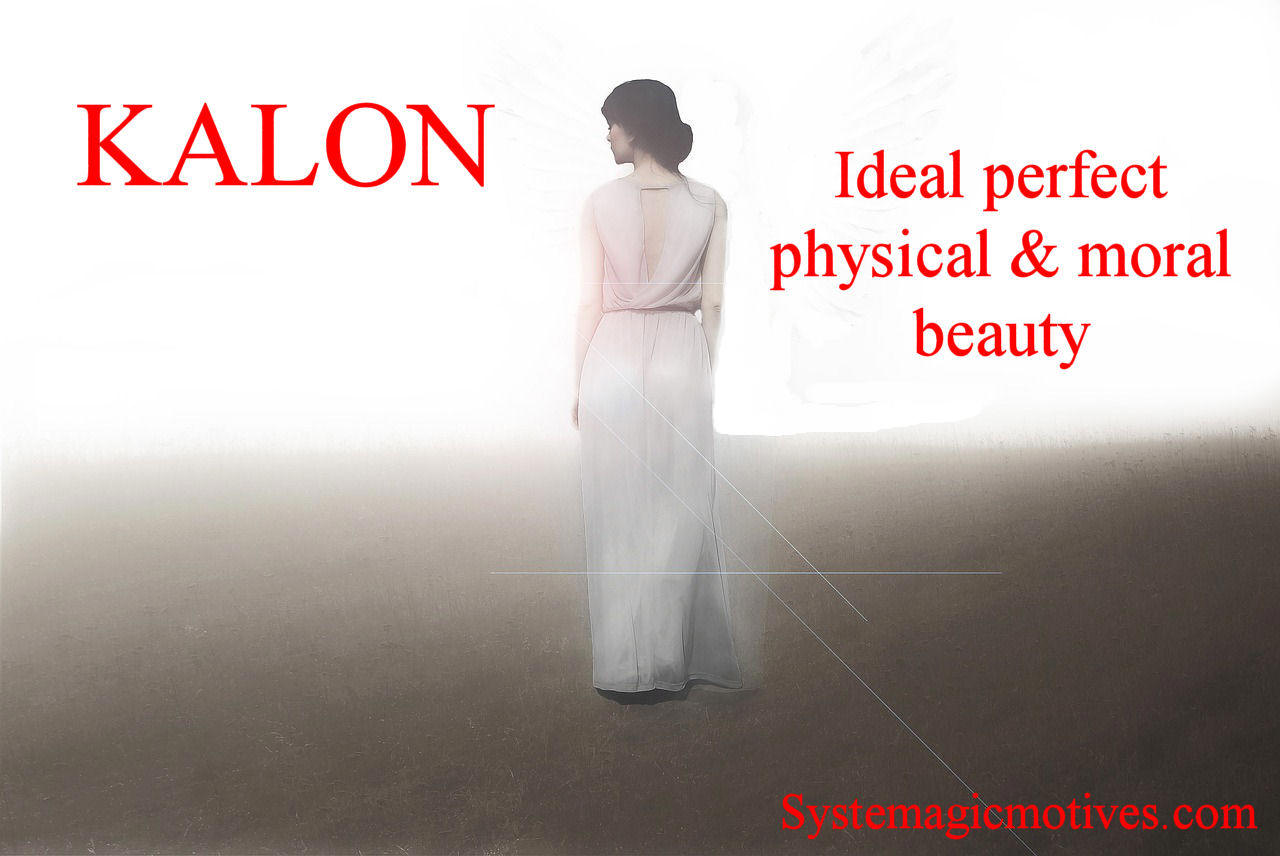 >
>
 >
>
Kalon n. Ideal perfect physical and moral beauty.
The term "kalon" is derived from the Greek word "καλόν," which means "beautiful" or "noble." In ancient Greek philosophy and aesthetics, "kalon" signifies not just physical beauty but a broader concept of moral and ethical virtue. It embodies the idea that true beauty encompasses both the external appearance and the inner qualities of goodness and honor. The term was often used to describe individuals or objects that were admired not only for their attractiveness but also for their exemplary character or noble nature.
In philosophical contexts, especially in the works of Plato and Aristotle, "kalon" is linked to the notion of "kalokagathia," which translates to the ideal of combining both beauty (kalon) and goodness (agathos). This concept reflects the belief that true beauty is intertwined with moral excellence, suggesting that a person or thing should be valued for both its external allure and its inner virtues. Plato, for example, explored these ideas in his dialogues, discussing how the appreciation of beauty should lead to a deeper understanding of the good and the just.
The concept of "kalon" also extends into various aspects of Greek culture, including art, literature, and public life. In art, it was used to praise works that captured both aesthetic beauty and moral significance, reinforcing the belief that artistic creations should reflect the highest ideals of human virtue. In literature, characters described as "kalon" were often those who exemplified the harmony between outward beauty and virtuous behavior. Thus, "kalon" remains a significant term in understanding classical Greek notions of beauty and virtue, highlighting the enduring connection between appearance and ethical excellence.
Positive Nouns that Describe People
"When I'm working on a problem,
I never think about beauty.
I think only how to solve the problem.
But when I have finished
If the solution is not beautiful,
I know it is wrong."
- R. Buckminster Fuller